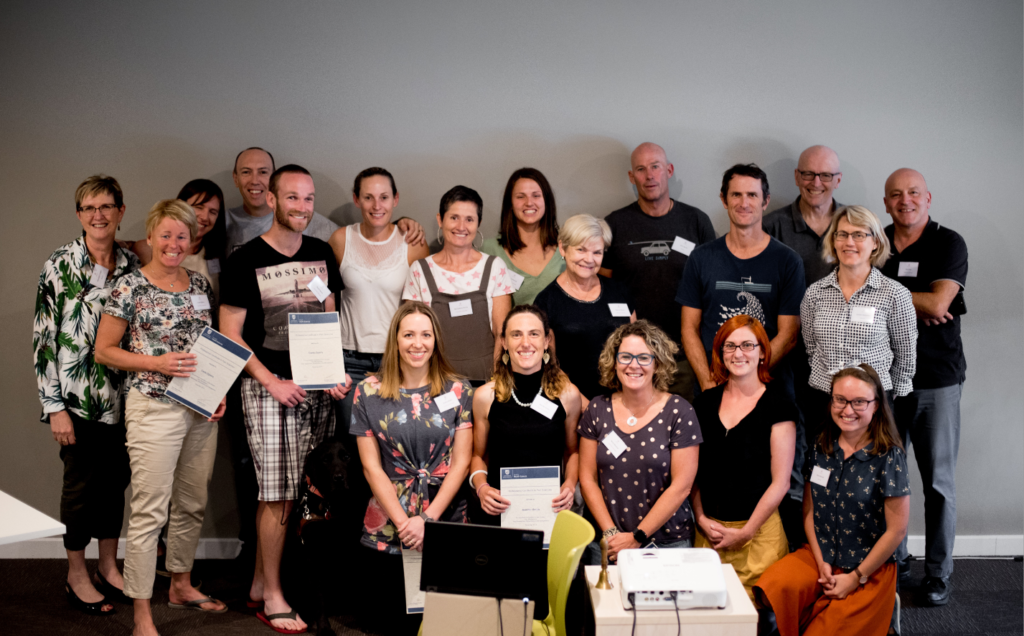Community stories: 24 September 2020
The Pain Revolution, in conjunction with the University of South Australia, set out to establish a community-led health initiative to promote best-practice pain management services in country NSW and Victoria, by raising awareness of pain neurobiology and the use of a bio-psycho-social pain model of education and care.
If that all sounds quite complicated, these facts are simpler to understand, though not very easy to digest:
- One in five Australians lives with chronic pain. In those over the age of 65, this increases to 1 in 3.
- According to The Pain Revolution, persistent pain is a bigger disability burden on rural Australia than cancer and diabetes combined.
- It is the most common reason for early departure from the workforce, and a known risk factor for severe depression and suicide.
What’s more, access to pain management services is poor in rural communities, and most attempts to address the problem include ‘travelling health teams’ and ‘country visits’ from city health specialists. With GPs reporting that they have insufficient knowledge, skill and self-efficacy to deliver best practice for persistent pain patients, The Pain Revolution stepped in to design a sustainable program of training, mentoring and resourcing with a focus on local capacity building.
Founded in 2017, The Pain Revolution is a cross sector collaboration led by Professor Lorimer Moseley from within the School of Health Science at the University of South Australia. It also draws on expertise from others working in the field, holding strong partnerships with the National Rural Health Alliance, Pain Australia, Australian Pain Society, the Australian Physiotherapy Association and the Australian College of Sports & Exercise Physicians. Their collective aim is to embed the capacity to deliver best practice pain education and care within rural and regional communities, and they are doing this through the Local Pain Collectives (LPC) program.

Pain science is an area with lots of interesting research and developments; new and effective approaches have been identified to prevent and manage persistent pain, placing emphasis on active approaches (movement and learning based) rather than passive ones (drugs, massage and surgery). These new self-management approaches can seem counter-intuitive amongst health professionals unless they have an understanding of contemporary pain science. International guidelines now universally recommend education as first-line treatment, but this is rarely delivered effectively as part of usual care.
The Pain Revolution determines where to target their efforts by assessing which rural and regional communities are flagged by the Australian Health Atlas as having excessive opioid prescriptions, back fusions and knee replacements. In response, the LPC program aims to upskill GPs and allied health professionals in best practise pain education and care within these communities, and establish a supported network amongst this difficult area of medical practice.
The Pain Revolution provided scholarships to twelve health professionals who live in regional communities across NSW/VIC. These individuals were trained to organise and deliver pain education events to the general public and other health professionals, and become clinical leaders and ‘champions for change’ within their community. Funding from the Enhancing Country Health Outcomes (ECHO) grant program enabled them to form a Local Pain Collective and deliver pain education in six regional areas of NSW: Wollongong, Nowra, Jindabyne, Cooma, Wagga Wagga and Albury/Wodonga.
Each Collective has delivered activities including pain education sessions, clinical support for knowledge to practice transfer, and a facilitated platform for peer-to-peer learning and resource sharing. A three-day workshop strengthened the network, bringing together the local pain educators, the reference group, content experts and facilitators, and monthly network meetings followed. The workshop also informed where skills could be developed, and this fed into the design and delivery of a monthly webinar series. Topics of direct relevance to the rural and regional context included understanding opioids, appraising evidence, facilitation skills, implementing behaviour change principles to pain care, and choosing words carefully when talking to pain patients.
In their application, Pain Revolution wrote that the project would deliver benefits on three levels. Of course it would benefit the rural and regional-based GPs and allied health professionals that participate. By improving pain education and care, it would also benefit the 1 in 5 rural Australians who suffer from persistent pain and the many more at risk of it because of a lack of up-to-date information and care.
The third level of benefit really speaks to the aims of the ECHO grant program:
“The extent to which persistent pain impacts entire communities – almost everyone is affected – means that this project will benefit entire communities by promoting informed self-management and resilience.”
FRRR is delighted to have been able to support this program, which is clearly making a difference to the lives of many rural people.

